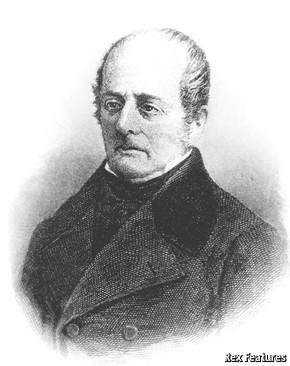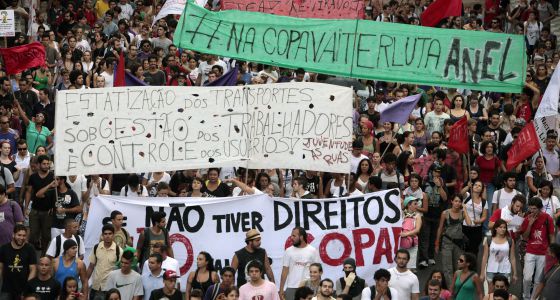Bello
Latin America’s enduring need for the rule of law, education and openness

WE HAVE long taken notice of Latin America. The leading article in The Economist’s very first issue, in 1843, called on Britain to slash tariffs on the import of Brazilian sugar and cotton. Our coverage of the Mexican Revolution of 1910-17 is cited by historians. More recently, in 1997, we recognised the progress of Latin America in establishing (or re-establishing) democracies and in overcoming hyperinflation and debt crises by creating a separate Americas section (in which we included Canada).
This week sees the start of a new column, which will give further depth to our coverage of Latin America. It is tribute to the region’s expanding weight in the world. Brazil and Mexico now count among the ten biggest economies by purchasing power. Latin America is of critical importance in energy (it has a fifth of the world’s oil reserves), food production and the environment (with half the surviving rainforest). Cuba excepted, democracy holds sway throughout the region, though it is under threat in some places. Thanks to faster growth, 60m Latin Americans have left poverty since 2002; income inequality, a perennial problem, has fallen.
The reality is rather different. Brazil seeks global influence in its own right; Mexico’s close economic ties to the United States will be reinforced by its recent energy reform; and the free-trading countries of the Pacific seaboard look to Asia, in tacit despair at the archaic statism of places like Venezuela and Argentina.Latin America’s leaders constantly proclaim their unity. They did so again this week in Havana at a meeting of the Community of Latin American and Caribbean States (CELAC), a regional organisation formed in 2011 solely to distinguish “our America” (in the phrase of José Martí, a Cuban patriot) from the United States and Canada.
Politics and trade are not the only faultlines. Latin America is fragmented by huge distances, by peculiarities of history, and even by language—not just Spanish, but also Portuguese in Brazil, French in Haiti, and English in several Caribbean islands. Such diversity made this column very hard to name. Brazil and Mexico, the region’s two giants, share no heroes and few points of cultural or historical reference with each other, or with Spanish-speaking South America.
After much head-scratching, we opted to name the column after Andrés Bello (1781-1865), a Venezuelan-born polymath, educator, writer and diplomat. If Simón Bolívar and the other 19th-century liberators provided the ramshackle hardware of Latin American independence, it was Bello (pronounced “BAY-yo”) who did more than anyone to create the software of nation-building.
His biography is an early testament to globalisation. Having spent 19 years in London as an often-unpaid envoy for independence, he moved to Chile, where he ran the foreign ministry and was the founding rector of the University of Chile. He drew up the country’s civil code, which proclaimed the equality of citizens before the law. It was quickly copied in half a dozen countries in the region, and had a significant impact in others—including Brazil and Mexico. He also wrote an influential treatise on international law, which argued for the equal status of nations, as well as a bestselling Spanish grammar for Latin Americans.
Bello was a liberal, but a realistic one, who believed that strong political institutions were essential to thwart anarchy and for liberty to flourish. Whereas Bolívar argued that the new republics needed the discipline of top-down authority, Bello thought that to succeed they needed to create citizens, through universal public education and, above all, the rule of law (“our true patria”, he once wrote). In addition, he was an advocate for trade and an internationalist, insisting that the new republics should remain open to the ideas and products of the world.
The causes espoused by Bello—the rule of law, education and openness—are enduring ones. They loom especially large in Latin America today, as the great commodity boom wanes. Populists peddling an inward-looking nationalism, who have ruled by state diktat and political favour rather than by law, are being found out at last, as this month’s devaluations in Argentina and Venezuela show.
The region once again has to pay attention to education, productivity and competitiveness if it is to sustain growth, and to the rule of law it is to turn back the tide of criminal violence that threatens its citizens’ quality of life. In 21st-century Latin America the teachings of the region’s greatest 19th-century public intellectual are more relevant than ever.









